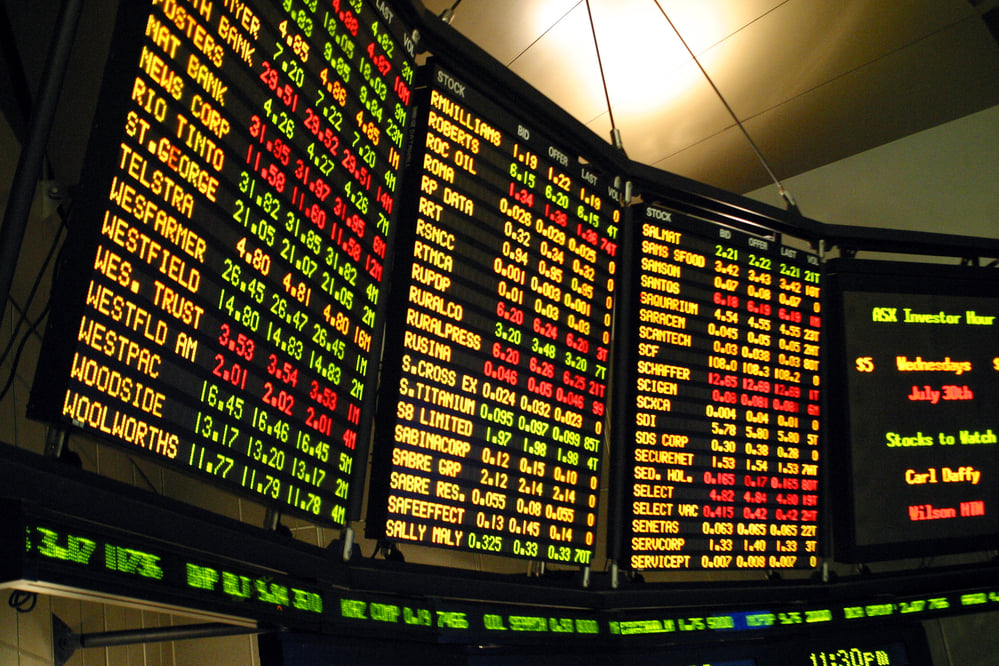
Xerox stock (NYSE:XRX) is struggling to find direction after a spate of news. On the one hand, the company’s stock is falling after it announced lower forward earnings guidance. This is due to the company’s jettisoning of Fujifilm.
As a result of its decision to sell its 25% stake in Fuji Xerox to Fujiflm, Xerox is forecasting a reduction in earnings per share (EPS) to $3.30 from $3.40. Both numbers were below analysts’ consensus estimates for $4.05. The move also ended a lawsuit that had been filed by Fujifilm against Xerox. The grounds for the lawsuit were that Xerox had walked away from a proposed merger between the companies.
However, getting rid of Fujifilm was a necessary part of Xerox’s growth plans.
Xerox is looking to buy Hewlett Packard
In late November, as first reported in The Wall Street Journal, the company announced plans to buy Hewlett Packard (NYSE:HPE). The Hewlett Packard board of directors has rejected XRX’s $33 billion offer twice. The move is both bold and intriguing since Hewlett Packard’s market value ($29 billion) is three times that of Xerox.
To that end, HP has rejected the offer. In a letter sent to Xerox by HP the offer seriously undervalues the company. “HP has numerous opportunities to create value for HP shareholders on a standalone basis.” The letter went on to say, “We will not let aggressive tactics or hostile gestures distract us from our responsibility to pursue the most value-creating path.”
However, Xerox does not look to be taking no for an answer. And while it appears Xerox is trying to reach an amicable solution, they are not ruling out the possibility of a hostile takeover.
The first step announced by Xerox Chairman John Visentin is the company’s intention “to engage directly with HP shareholders to solicit their support in urging the HP Board to do the right thing and pursue this compelling opportunity.” To be fair, this is a few steps removed from proceeding with a hostile takeover bid. And it suggests that Xerox is hoping that the HP board will accept its original offer.
The merger has high-profile support
Activist investor Carl Icahn has gone on record as being a big supporter of the deal. In addition to owning a 10.6% stake in Xerox, Icahn has also taken a 4.24% stake in Hewlett Packard. Icahn argues that the merger will yield big profits for investors.
“I think a combination is a no-brainer,” Mr. Icahn said. “I believe very strongly in the synergies,” he said, adding that “there will probably be a choice between cash and stock and I would much rather have the stock, assuming there’s a good management team.”
As a nod to the disparity in market value between the two companies, Icahn has said it does not matter to him what structure the merger would take.
Does the merger matter to investors?
If the merger goes through, it would combine two iconic names in the home and office printing industry. On the surface, it would seem that the merger would be necessary as both companies are facing pressure caused by reduced demand for their services in the digital age as the need for printed documents continues to decline.
From a structural standpoint, however, the move makes sense as there is not much overlap in product. Much of the $10 billion Xerox makes in primary revenue comes from the rental and maintenance of large printers and copy machines for businesses. On the other hand, Hewlett Packard sells mostly smaller printers and printing supplies. It is also one of the largest PC makers – although that too is a declining industry. HP recorded $58 billion in annual sales in its fiscal year that ended in October 2018.
It remains to be seen if either company or a combined Xerox and Hewlett Packard would be able to take advantage of growth opportunities that may exist with technologies such as software services, 3-D printing, and AI applications.
Both companies have taken aggressive cost-cutting measures in an effort to retool their businesses. Earlier in the year, Xerox announced plans to cut approximately $640 million in expenses. For their part, Hewlett Packard is moving forward with a plan that is projected to save the company $1 billion annually.
However, Icahn for one does not seem to be that concerned about a merger between two companies in a shrinking (some would say dying) industry. “I’ve found over the years that these types of companies that are in shrinking industries tend to decline much more slowly than many market participants may predict while continuing to generate substantial amounts of cash,” he said.
Before you make your next trade, you'll want to hear this.
MarketBeat keeps track of Wall Street's top-rated and best performing research analysts and the stocks they recommend to their clients on a daily basis.
Our team has identified the five stocks that top analysts are quietly whispering to their clients to buy now before the broader market catches on... and none of the big name stocks were on the list.
They believe these five stocks are the five best companies for investors to buy now...
See The Five Stocks Here
Learn the basics of options trading and how to use them to boost returns and manage risk with this free report from MarketBeat. Click the link below to get your free copy.
Get This Free Report
Like this article? Share it with a colleague.
Link copied to clipboard.